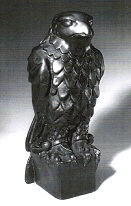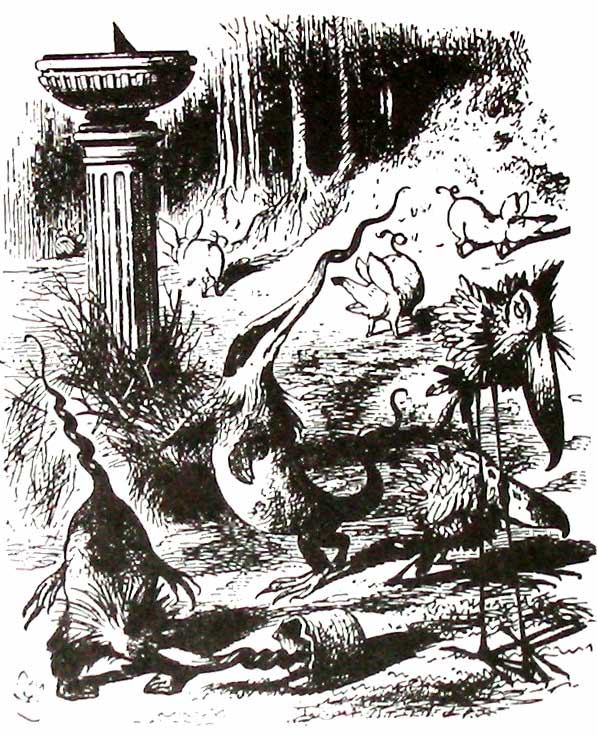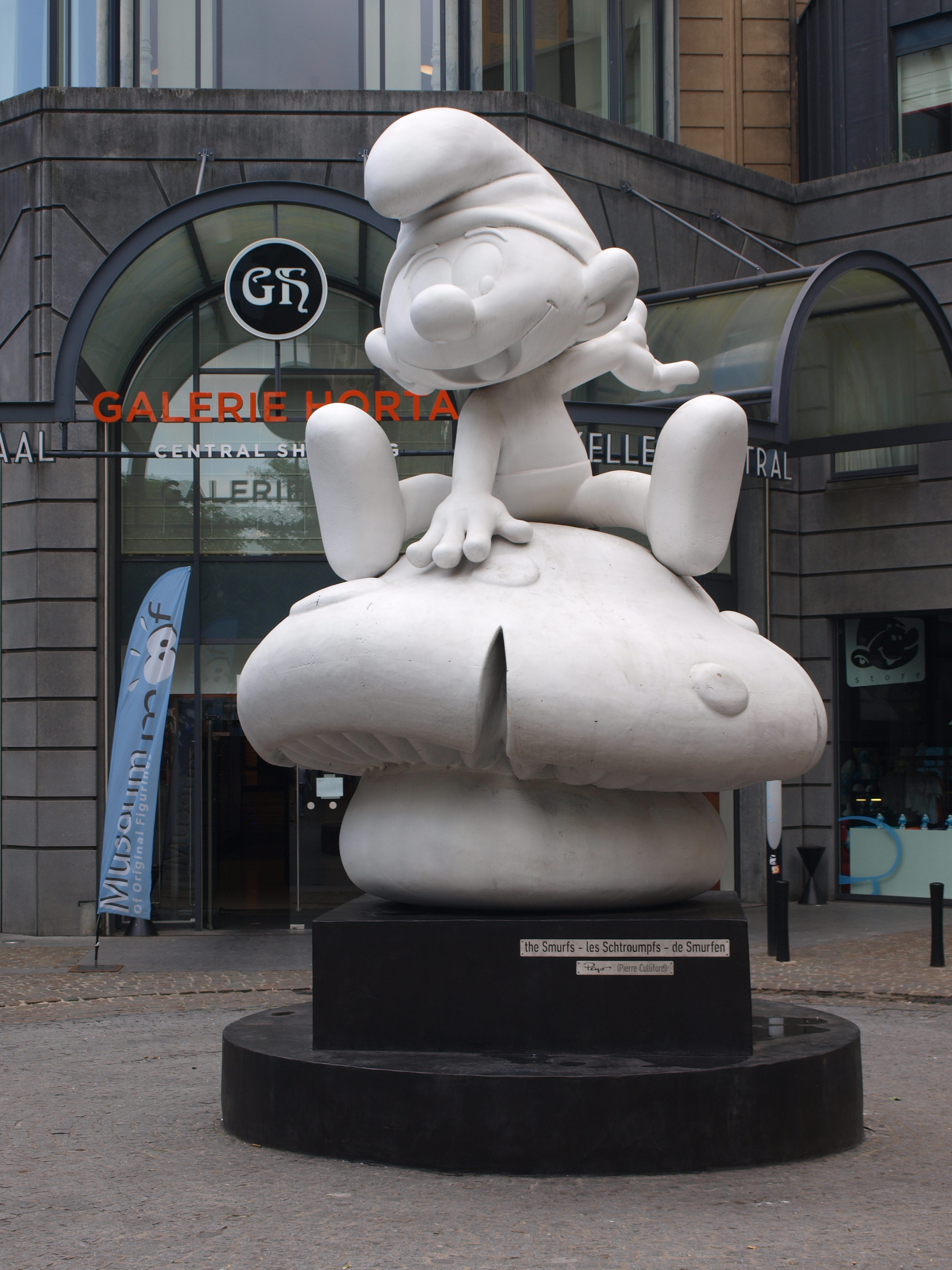|
Schmilblick
The Schmilblick is an imaginary object first described in a nonsense prose by the French humorist Pierre Dac during the 1950s. According to its creator, the Schmilblick can be used in almost any occasion, therefore being strictly indispensable. Dac himself credits the fictional brothers Jules and Raphaël Fauderche with its invention ("Fauderche" means "Fake arse" in French). The ''Schmilblick'' resurfaced in 1969, in a TV show by Guy Lux and Jacques Antoine entitled ''Le Schmilblic'' (sometimes spelled ''Schmilblik'' or ''Schmilblick''). The aim of the game was to guess the name of an object given some of its characteristics (color, shape, use and so on). This TV game actually re-uses an idea from an old radio show called ''Tirlipot'' created several years before. The word quickly became very popular in French language and was sometimes used as a placeholder name, particularly for a strange or unknown object similar to English words like "thingamajig" or "whatchamacallit". Nowada ... [...More Info...] [...Related Items...] OR: [Wikipedia] [Google] [Baidu] |
Jacques Antoine
Jacques Antoine (14 March 1924 – 14 September 2012) was a French creator and producer of game shows. His most famous creations include '' Treasure Hunt'', ''Interceptor'', '' Fort Boyard'', and ''The Crystal Maze''. Personal life Jacques Antoine was born 14 March 1924 in Neuilly-sur-Seine, a suburb to the west of Paris. His father was writer and director André-Paul Antoine, and his grandfather was theatre director André Antoine. Career At the age of 24, Jacques Antoine made his first steps in radio with Pierre Bellemare. From the 1950s to 1990s, he created and produced many programs, including more than 150 television and radio games among the most famous in French-speaking countries, such as '' La Tête et les Jambes'', ''Le Schmilblick'', ''Les Jeux de 20 heures'', ''La Chasse aux trésors'', ''L'Académie des neuf'', ''Tournez manège'', and '' Fort Boyard''. Death and legacy Antoine died on 14 September 2012 of cardiac arrest. The French host of ''Fort Boyard'' Olivie ... [...More Info...] [...Related Items...] OR: [Wikipedia] [Google] [Baidu] |
Pierre Dac
André Isaac (15 August 1893 Châlons-sur-Marne, France – 9 February 1975 Paris, France), better known as Pierre Dac, was a French humorist. During World War II, Pierre Dac was one of the speakers of the BBC's ''Radio Londres'' service to occupied France. He produced a series of satirical songs which were broadcast on the station. After the war, he participated in a comic duet with the humorist Francis Blanche. A very active freemason, initiated in 1926 at "Les Inséparables d'Osiris" lodge in Paris, he created a parodic and slang masonic rite "Le rite des Voyous" still practiced in some French lodges. Dac is also the creator of the comic term "Schmilblick." Filmography * ''Radio Surprises'' (1940) * ''Good Enough to Eat'' (1951) * ''La Famille Anodin'' (1956) (TV) * ''La Belle Américaine'' (1961) * ''Ne jouez pas avec les Martiens'' (1968) * ''Le Petit Baigneur ''The Little Bather'' (french: Le Petit Baigneur), is a French comedy film from 1968, directed and written by ... [...More Info...] [...Related Items...] OR: [Wikipedia] [Google] [Baidu] |
Guy Lux
Guy Maurice Lux (21 June 1919 – 13 June 2003) was a French TV host and producer best known for his 1961 creation of the game show ''Intervilles'' and its numerous spinoffs. During his 40 year career, he produced, directed, hosted, and wrote more than 40 television shows. Biography Lux was born Guy Maurice Lux on 21 June 1919 in Paris, France and has Alsatian ancestry. He attended Lycée Arago for high school then École Estienne for university. He studied fine arts and applied arts and studied to be a lyricist. In 1939, he joined the war effort as an ambulance driver but was taken prisoner by enemy troops. He escaped and joined the French Resistance and later the Allied troops. After the war, he was awarded the Escapees' Medal and a Croix de Guerre. Due in part to the economic conditions in post-war France, Lux had difficulty finding buyers for his songs. In the 1940s, he ran a hardware store in Asnières-sur-Seine, where he would set up games for his customers to play, e ... [...More Info...] [...Related Items...] OR: [Wikipedia] [Google] [Baidu] |
Coluche
Michel Gérard Joseph Colucci (, ; 28 October 1944 – 19 June 1986), better known under his stage name Coluche (), was a French stage comedian and cinema actor. He adopted ''Coluche'' as a stage name at age 26, when he began his entertainment career. He became known for his irreverent attitude towards politics and the establishment, and he incorporated this into much of his material. He was one of the first major comedians to regularly use profanities as a source of humor on French television. He also founded the charity " Les Restaurants du Cœur" which still provides free meals and other products to people in need. Early life Colucci was born on 28 October 1944, just weeks after the Liberation of Paris, in a hospital in the 14th arrondissement of the city. His mother, Simone Bouyer (called "Monette"), worked as a florist in the Boulevard du Montparnasse. His father, Honorio Colucci, from Casalvieri in Lazio, Italy, was a painter and decorator. His father died in 1947 at age ... [...More Info...] [...Related Items...] OR: [Wikipedia] [Google] [Baidu] |
MacGuffin
In fiction, a MacGuffin (sometimes McGuffin) is an object, device, or event that is necessary to the plot and the motivation of the characters, but insignificant, unimportant, or irrelevant in itself. The term was originated by Angus MacPhail for film, adopted by Alfred Hitchcock, and later extended to a similar device in other fiction. The MacGuffin technique is common in films, especially thrillers. Usually, the MacGuffin is revealed in the first act, and thereafter declines in importance. It can reappear at the climax of the story but may actually be forgotten by the end of the story. Multiple MacGuffins are sometimes derisively identified as plot coupons. History and use The use of a MacGuffin as a plot device predates the name MacGuffin. The Holy Grail of Arthurian legend has been cited as an early example of a MacGuffin. The Holy Grail is the desired object that is essential to initiate and advance the plot. The final disposition of the Grail is never revealed, suggesting ... [...More Info...] [...Related Items...] OR: [Wikipedia] [Google] [Baidu] |
Literary Nonsense
Literary nonsense (or nonsense literature) is a broad categorization of literature that balances elements that make sense with some that do not, with the effect of subverting language conventions or logical reasoning. Even though the most well-known form of literary nonsense is nonsense verse, the genre is present in many forms of literature. The effect of nonsense is often caused by an excess of meaning, rather than a lack of it. Its humor is derived from its nonsensical nature, rather than wit or the "joke" of a punchline. History Literary nonsense, as recognized since the nineteenth century, comes from a combination of two broad artistic sources. The first and older source is the oral folk tradition, including games, songs, dramas, and rhymes, such as the nursery rhyme ''Hey Diddle Diddle''. The literary figure Mother Goose represents common incarnations of this style of writing. The second, newer source of literary nonsense is in the intellectual absurdities of court p ... [...More Info...] [...Related Items...] OR: [Wikipedia] [Google] [Baidu] |
Humorist
A humorist (American) or humourist (British spelling) is an intellectual who uses humor, or wit, in writing or public speaking, but is not an artist who seeks only to elicit laughs. Humorists are distinct from comedians, who are show business entertainers whose business is to make an audience laugh. It is possible to play both roles in the course of a career. The iconic humorist Mark Twain (pen name of Samuel Langhorn Clemens, 1835–1910) was widely considered the "greatest humorist" the U.S. ever produced, as noted in his ''New York Times'' obituary. It's a distinction that garnered wide agreement, as William Faulkner called him "the father of American literature". The United States national cultural center, the John F. Kennedy Center for the Performing Arts, has chosen to award a Mark Twain Prize for American Humor annually since 1998 to individuals who have "had an impact on American society in ways similar to the distinguished 19th century novelist and essayist best know ... [...More Info...] [...Related Items...] OR: [Wikipedia] [Google] [Baidu] |
French Language
French ( or ) is a Romance language of the Indo-European family. It descended from the Vulgar Latin of the Roman Empire, as did all Romance languages. French evolved from Gallo-Romance, the Latin spoken in Gaul, and more specifically in Northern Gaul. Its closest relatives are the other langues d'oïl—languages historically spoken in northern France and in southern Belgium, which French ( Francien) largely supplanted. French was also influenced by native Celtic languages of Northern Roman Gaul like Gallia Belgica and by the ( Germanic) Frankish language of the post-Roman Frankish invaders. Today, owing to France's past overseas expansion, there are numerous French-based creole languages, most notably Haitian Creole. A French-speaking person or nation may be referred to as Francophone in both English and French. French is an official language in 29 countries across multiple continents, most of which are members of the ''Organisation internationale de la Francophonie'' ... [...More Info...] [...Related Items...] OR: [Wikipedia] [Google] [Baidu] |
Placeholder Name
Placeholder names are words that can refer to things or people whose names do not exist, are tip of the tongue, temporarily forgotten, are not relevant to the salient point at hand, are to avoid stigmatization, are unknowable/unpredictable in the context in which they are being discussed, or are otherwise de-emphasized whenever the speaker or writer is unable to, or chooses not to, specify precisely. Placeholder names for people are often list of terms referring to an average person, terms referring to an average person or a predicted persona (user experience), persona of a typical user. Linguistic role These Free variables and bound variables, placeholders typically function grammar, grammatically as nouns and can be used for people (e.g. ''John Doe, John Doe, Jane Doe''), objects (e.g. ''Widget (economics), widget''), locations ("Main Street"), or places (e.g. ''Anytown, USA''). They share a property with pronouns, because their reference, referents must be supplied by co ... [...More Info...] [...Related Items...] OR: [Wikipedia] [Google] [Baidu] |
BBC Online
BBC Online, formerly known as BBCi, is the BBC's online service. It is a large network of websites including such high-profile sites as BBC News and BBC Sport, Sport, the on-demand video and radio services branded BBC iPlayer and BBC Sounds, the children's sites CBBC (TV channel), CBBC and CBeebies, and learning services such as Bitesize and BBC Own It, Own It. The BBC has had an online presence supporting its TV and radio programmes and web-only initiatives since April 1994, but did not launch officially until 28 April 1997, following government approval to fund it by Television licensing in the United Kingdom, TV licence fee revenue as a service in its own right. Throughout its history, the online plans of the BBC have been subject to competition and complaint from its commercial rivals, which has resulted in various public consultations and government reviews to investigate their claims that its large presence and public funding distorts the UK market. The website has gone t ... [...More Info...] [...Related Items...] OR: [Wikipedia] [Google] [Baidu] |
The Smurfs
''The Smurfs'' (french: Les Schtroumpfs; nl, De Smurfen) is a Belgian comic franchise centered on a fictional colony of small, blue, humanoid creatures who live in mushroom-shaped houses in the forest. ''The Smurfs'' was first created and introduced as a series of comic characters by the Belgian comics artist Peyo (the pen name of Pierre Culliford) in 1958, wherein they were known as ''Les Schtroumpfs''. There are more than 100 Smurf characters, and their names are based on adjectives that emphasise their characteristics, such as "Jokey Smurf", who likes to play practical jokes on his fellow Smurfs. "Smurfette" was the first female Smurf to be introduced in the series. The Smurfs wear Phrygian caps, which came to represent freedom during the modern era. The word "smurf" is the original Dutch translation of the French "schtroumpf", which, according to Peyo, is a word he invented during a meal with fellow cartoonist André Franquin when he could not remember the word ''salt''. ... [...More Info...] [...Related Items...] OR: [Wikipedia] [Google] [Baidu] |
French Words And Phrases
French ( or ) is a Romance language of the Indo-European family. It descended from the Vulgar Latin of the Roman Empire, as did all Romance languages. French evolved from Gallo-Romance, the Latin spoken in Gaul, and more specifically in Northern Gaul. Its closest relatives are the other langues d'oïl—languages historically spoken in northern France and in southern Belgium, which French (Francien) largely supplanted. French was also influenced by native Celtic languages of Northern Roman Gaul like Gallia Belgica and by the ( Germanic) Frankish language of the post-Roman Frankish invaders. Today, owing to France's past overseas expansion, there are numerous French-based creole languages, most notably Haitian Creole. A French-speaking person or nation may be referred to as Francophone in both English and French. French is an official language in 29 countries across multiple continents, most of which are members of the ''Organisation internationale de la Francophonie'' (OI ... [...More Info...] [...Related Items...] OR: [Wikipedia] [Google] [Baidu] |






